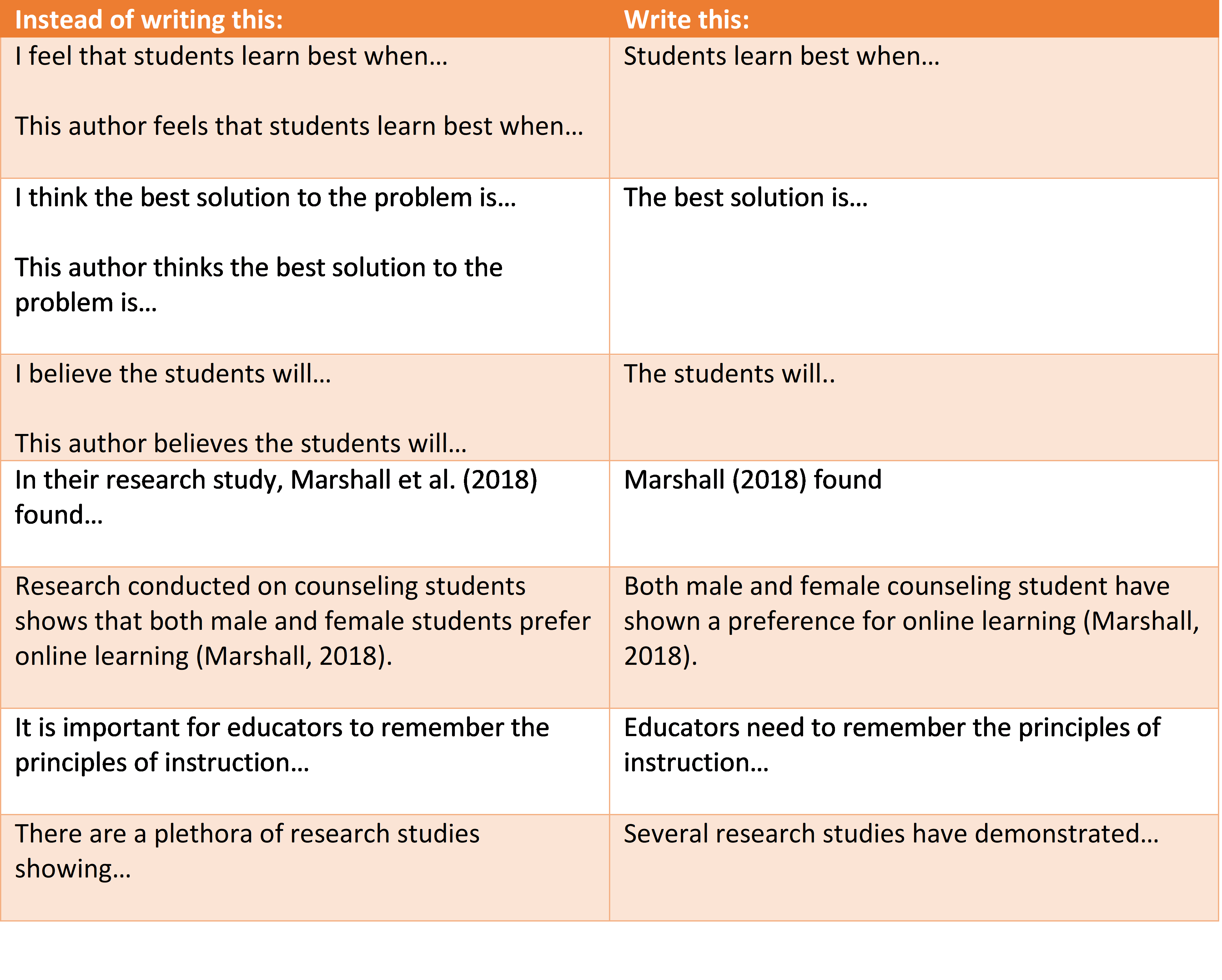EXPLANATION AND EXAMPLES
Economy of expression means writers “Say only what needs to be said. The author who is frugal with words…writes a more readable manuscript….and increases the chances that the manuscript will be accepted for publication….Short words and short sentences are easier to comprehend than are long ones” (APA, 2010, p. 67).
Many novice research writers fall into familiar patterns of more informal, conversational style writing. Although this style is helpful in generating early drafts of your writing, your goal as a scholar practitioner (a.k.a., student) is to learn to write in a professional, objective manner.
It’s a myth that academic writing needs to sound “smart” or “complicated.” Readers need to understand exactly what you are saying, especially when you are conveying your methods of research, research questions, hypotheses, and so forth. There can be no margin for misinterpretation. Per APA (2010), to maintain economy of expression (in other words, to be concise) avoid the following:
- Redundancy
- Wordiness
- Evasiveness (a.k.a, euphemism)
- Overuse of the passive voice
- Circumlocution (i.e., using more words than needed to say something simple)
- Stating the obvious
- Irrelevant observations or asides
Economy of expression also means eliminating any unnecessary phrasing from your writing. You can make sentences more concise by removing unnecessary phrasing, such as "I" statements and phrases that begin with "it" when "it" does not refer to something specific (e.g., a direct object). Similar expletive phrases include "there is" or "there are."
For example:

WHERE TO FIND MORE INFORMATION
For more information about economy of expression, see pages 67 and 68 of the Publication Manual, Sixth Edition (3.08 Economy of Expression).
ADDITIONAL RESOURCES
BACK TO…